Mum of disabled The Secret Life of 5 Year Olds star: I'm so unbelievably proud of my little girl
'If the episode makes just one person see disabled people as their equal, then that’s all we ever hoped for'
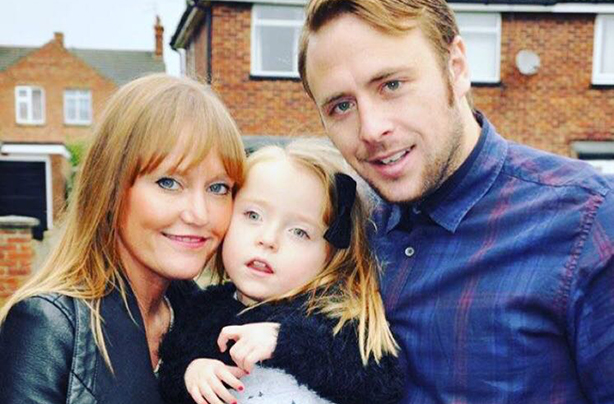
Parenting advice, hot topics, best buys and family finance tips delivered straight to your inbox.
You are now subscribed
Your newsletter sign-up was successful
The Secret Life of 4, 5 and 6 Year Olds has become one of our favourite programmes to tune into.
Spying on little ones when they think no adults are watching makes for hilarious viewing material, but the show also provides a valuable insight into child behavioural psychology.
In the new season, focusing on five year olds, Channel 4 introduces Daisy to the group, a girl with spastic quadriplegic cerebral palsy who uses a wheelchair to get around and sit up.
Daisy lives in Norfolk with her mum Lu, who's a medical secretary, and her dad Adam, a linesman for a power company. She manages to talk and communicate, as well as keeping up with her peers at school.
She's described as a sunny, cheeky child who is loving and compassionate towards others. Despite her disability, she's quite the adrenaline junkie, and loves horse-riding, zip wires, and swimming.
We spoke to Daisy's mum about why she signed her daughter up for the programme, how she felt watching Daisy interact with the other children, and how she's made sure Daisy has defied her doctors' expectations...
Daisy was born at 28 weeks, and was an IVF baby on our first attempt. She was delivered by emergency C-section, and spent a couple of months in hospital because she wasn't breathing. After numerous attempts with a ventilator, it took seven minutes for her to take her first breath.
Parenting advice, hot topics, best buys and family finance tips delivered straight to your inbox.
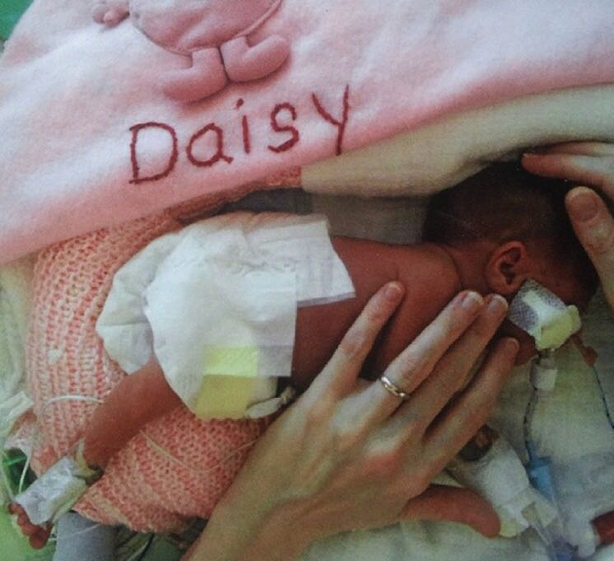
Nobody thought she would make it, until one night, she improved and came off of her ventilator - but when she had a routine brain scan, some bleeding in her brain was discovered. We were warned that this might cause cerebral palsy, but nine months later they told us that this wasn't the case - she was developing normally, and we thought we were clear from any complications.
A couple of months later, she was diagnosed with spastic quadriplegic cerebral palsy - level four out of five, five being the most severe. At this level, we were told that she would probably never speak or communicate, would have difficulty feeding, and wouldn't measure up to her peers cognitively.
At 18 months old, Daisy seemed to be responding fine, although she couldn't sit up or roll around. I asked if I could potty train her, and the health professional told me not to bother as there were more important things to worry about; control over her own bladder would be highly unlikely. I potty trained her every day for three years, and succeeded by the time she went to school.
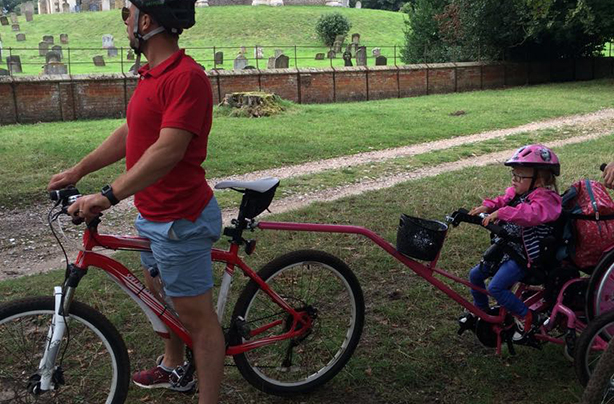
It spurred me on. 'If doctors thought that Daisy couldn't be potty trained, and she could, then what else was she capable of?' I asked myself - and she's been amazing us ever since.
She actually isn't that different from other children. It takes her longer to say things, but she manages and takes it so well. She's so happy to be in the skin she's in.
We signed up for the programme to try and demonstrate to other parents the need for their children to deal with those different to them in the right way. You can't blame children for how they behave - they're the most natural little creatures, and a lot of what they do is learned from their parents. We also wanted to have an insight into what social life was like for her when we weren't around - and we definitely got it.
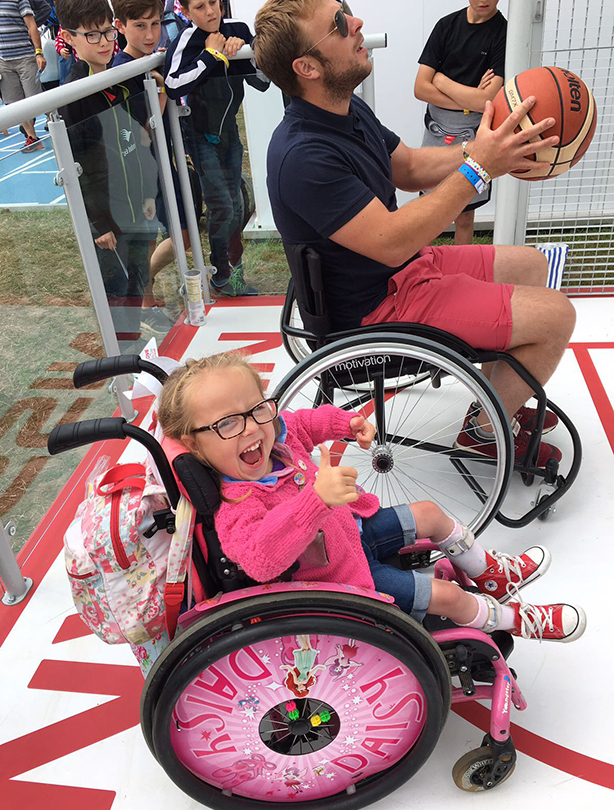
Daisy can be rather set in her ways when it comes to how she wants to play, because she can't take part in a lot of children's games. Often, what they choose to play means she's left alone because she can't run around and chase them, so she likes to instigate a game that she can play on her own terms to make sure she doesn't get left out. Her favourite game is 'Mums and Dads'.
However, children who don't know her always want to act like they're her mother, which annoys her a bit. Her playtime often has to be planned. Just like she can't spontaneously jump up and run around with the others, or seamlessly transition into another action-based game, she also can't walk away if she's had enough.
I was heartbroken watching her sat alone by herself, stuck in the treehouse. That's not any of the children's faults - it's just how her life is. You can't expect every five year old to understand how Daisy feels. I think Daisy understands that as well; she was really patient with everyone. It really puts everything into perspective when you have someone like Daisy in your life - suddenly all the things you used to complain about don't seem very important at all.
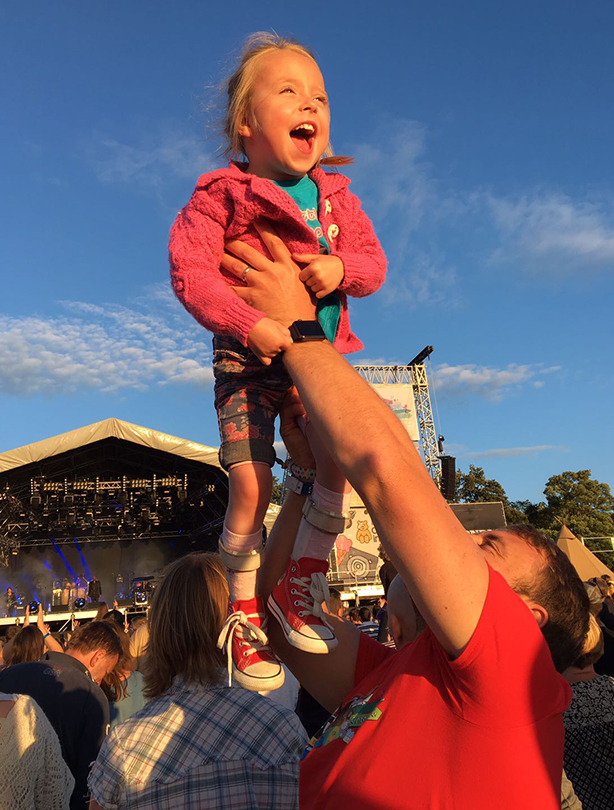
She can also come across as bossy at times, although you don't really see that on the programme! She's always ordering us around, but she tones it down around other children because I think she's self-conscious that it will make them more reluctant to play with her.
Her social interactions at her own school are very different. The other children didn't really get the chance to get used to Daisy, whereas her friends at school no longer think anything about her is that unusual.
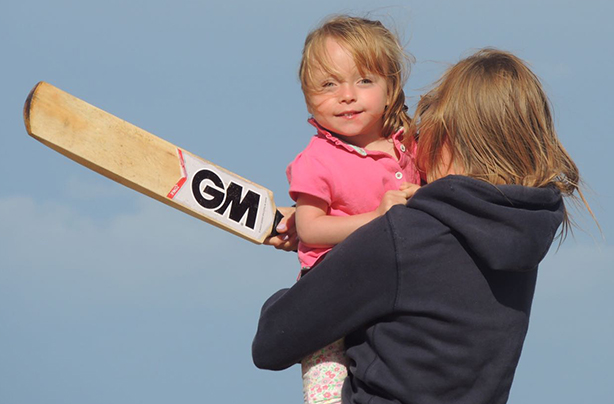
At first, they were like the children on the programme; they thought she was a baby because she's so small, and wanted to look after her and push her around like she's in a pushchair.
After a few weeks, they started to see that she was a little girl just like them, and is their equal, and I could see the children on the programme started to adapt this way towards her as well. You can spot her true friends at school - the ones who chat and laugh with her.
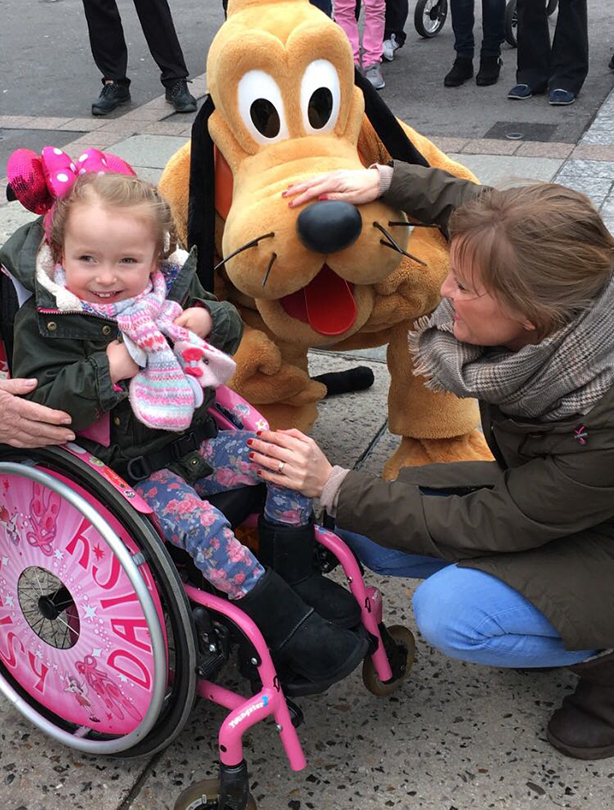
Daisy's one-to-one helper on the programme is similar to the lady she has helping her now - she's at school with her all day, but she does step back to let Daisy interact with kids on her own. Often, when there are adults around to tell children to include Daisy, it can become a routine and nobody will learn if they're just told what to do.
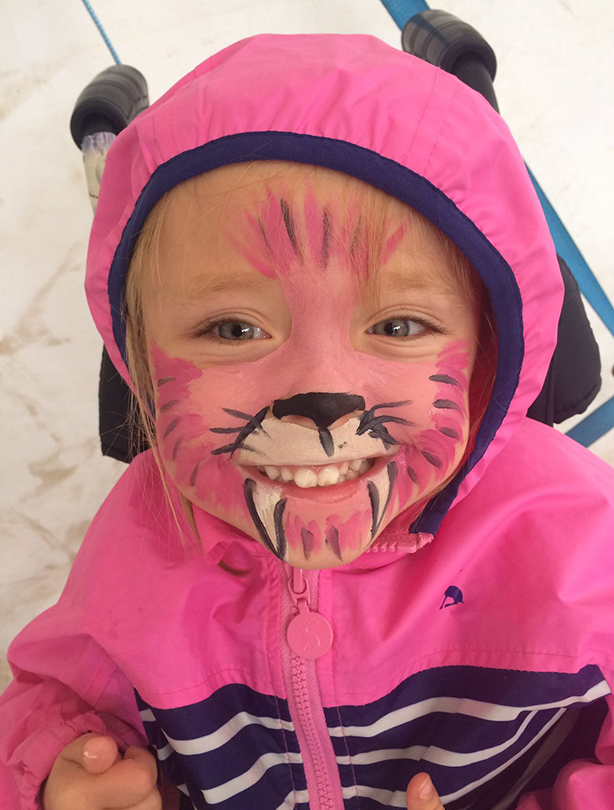
Daisy's participation on the show was a massive success for us, because it highlighted the difficulties she faces to the parents of the other children, as it will to everyone else watching. If it can provoke just one parent to say to their child, 'Just because someone is in a wheelchair, it doesn't mean that they think any differently to how you do - they just don't walk,' then that's all we ever hoped for.
Although watching Daisy at certain moments made me feel very sad, the message is so strong, and it's so vital.
I'm so unbelievably proud of my little girl. Just moments like when she managed to be potty-trained, to when she could operate her electric wheelchair, to now - she's keeping up with the other children at her school perfectly fine.
During the episode, she performed her play with the other kids on the programme and said 'I'm very proud of myself!' I thought, 'You definitely should be proud of yourself!' Seeing her so pleased almost made me cry.
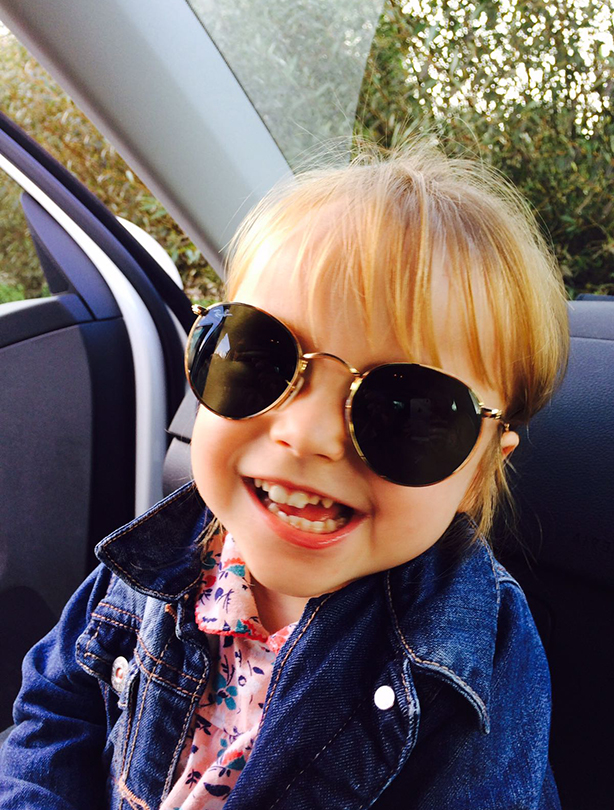
My advice to other parents with disabled children is to never give up. The time you put in to teaching them things is more than made up for by what you produce. We were told Daisy would never talk, but we kept persevering with a phonics CD and by talking to her, and look where she is now.
The Secret Life of 5 year olds airs Tuesday at 8pm on Channel 4. Daisy’s episode is available now at All 4
Trusted, informative, and empathetic – GoodToKnow is the ultimate online destination for parents. At GoodtoKnow, our mission is 'simple': we're trying to make sense of parenthood. On the site, you'll find everything you need for a happy, healthy family life. Our huge archive of content includes more than 18,000 articles and 1,500 how-to videos. These include expert-backed advice features on parenting, dealing with relationship changes after having a baby, self-care for mums and managing your family finances. We also feature tried-and-tested product reviews and buying recommendations for every stage of family life - from prams and Moses baskets to birthday gifts and top toys.